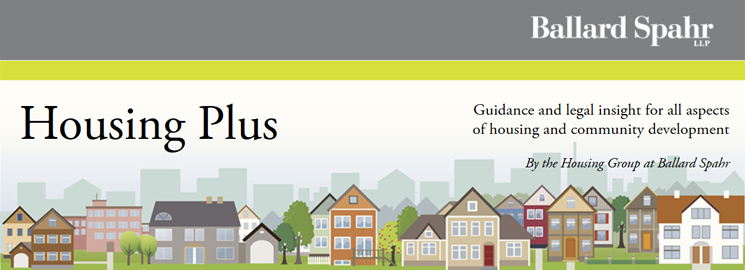
 One of the hot topics at the recent ABA Taxation Section meetings in Washington, D.C. was the IRS’s proposed regulations regarding the allocation of partnership recourse and nonrecourse liabilities under section 752 of the Internal Revenue Code (the “Proposed Regulations”). The Proposed Regulations have been the subject of heavy criticism since they were released in January, in part because of the fact that the existing regulations are relatively well-understood, and there is no obvious need for change. Part I of this post will examine the Proposed Regulations at a general level, and Part II will discuss them in the context of a Low-Income Housing Tax Credit (“LIHTC”) transaction.
One of the hot topics at the recent ABA Taxation Section meetings in Washington, D.C. was the IRS’s proposed regulations regarding the allocation of partnership recourse and nonrecourse liabilities under section 752 of the Internal Revenue Code (the “Proposed Regulations”). The Proposed Regulations have been the subject of heavy criticism since they were released in January, in part because of the fact that the existing regulations are relatively well-understood, and there is no obvious need for change. Part I of this post will examine the Proposed Regulations at a general level, and Part II will discuss them in the context of a Low-Income Housing Tax Credit (“LIHTC”) transaction.
It is relatively easy to distinguish recourse versus nonrecourse debt under the existing Section 752 regulations. Generally, nonrecourse debt is a liability of a partnership for which no partner (or related person) bears the economic risk of loss, and recourse debt is a liability for which a partner (or a related person) would be obligated to make a payment if the partnership were to constructively liquidate.
Under the Proposed Regulations, the analysis is more complicated. A partner’s payment obligation would only be recognized as recourse if it meets seven new requirements related to the payment obligation and a new minimum net value requirement that takes into account the fair market value of the partner’s assets. Due to the added complexity and the subjective nature of several of the “seven commandments,” the ABA panel appropriately noted that the characterization of debt as nonrecourse is “virtually a matter of election” under the Proposed Regulations.
In my next post, I’ll examine the potential impact of the proposed changes to the debt characterization rules in LIHTC deals.